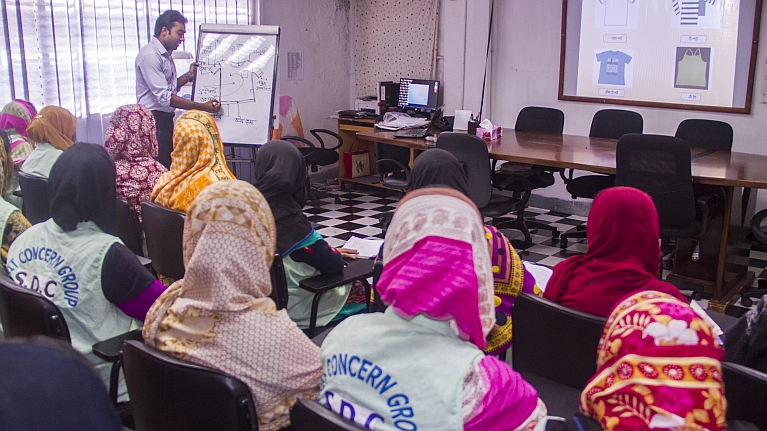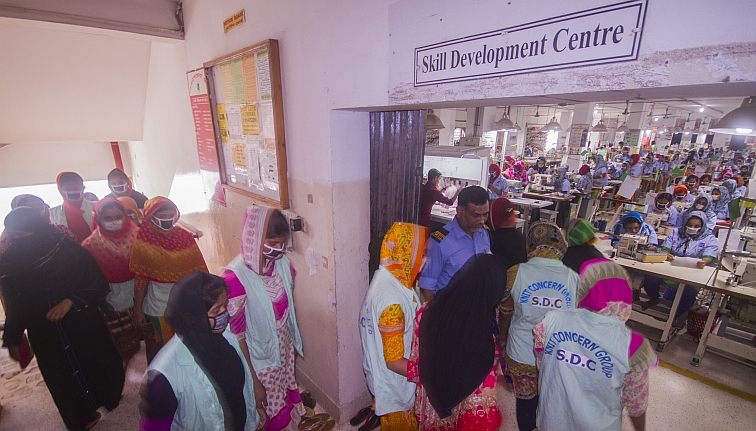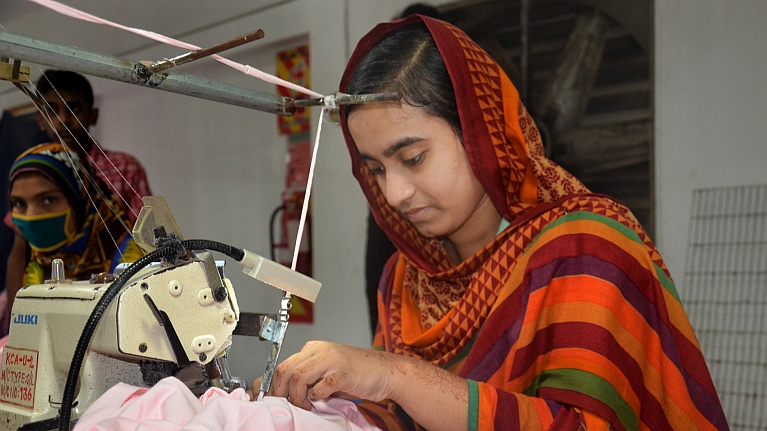Our impact, Their voices
Upgrading skills in Bangladesh: Lower staff turnover, higher benefits for employers and employees alike
Lack of opportunities for acquiring and upgrading skills in a systematic manner is a major constraint for the development of the Bangladeshi ready-made garment industry. The ILO is helping companies to meet this challenge.

Knit Concern Apparel, a major producer of high-quality knit apparel and lingerie, located in an industrial suburb close to Dhaka, is no exception, with some 3 to 5 per cent of its 15,000-strong work force moving on every month. This prompted the company to establish an in-house Enterprise-Based Training (EBT) center in 2015 with the support of the International Labour Organization (ILO).

Aligning skills with needs
“The factory spends a significant amount to manage the training center. But the overall benefit is much higher than the management cost,” said Nasim Ahmed, Director of Knit Concern Group.“Workers spend nearly two years as helpers to learn basic operations which can be learned during a few weeks of intense training”, said Ahmed. “The EBT Centre has enabled us to meet the gap from staff turnover by producing more skilled workers. It has also helped us to eliminate helpers from our factory, who have the chance to train as machine operators. This eases the pressure on the floor and utility services and helps ensure a healthy atmosphere. Skilled workers receive increased wages and above all our productivity increases.”

The EBT Centre benefits employees and employer alike, boosting the skills of workers so they can earn higher salaries while ensuring a steady flow of trained newcomers
“We provide training to about 100 people per month. Some of the trainees may subsequently go to work at other companies. This may seem like a loss but if the skills of our trained workers are used in other garment factories, I believe this is a contribution from us to the RMG sector,” Mr Ahmed adds.
Amongst those who have been trained is Tania Akhter who heard about the in-house training center from her sister, a Knit Concern employee. After completing 60 days training, Tania landed a job at Knit Concern as an overlock sewing machine operator.
“The trainers were very efficient and cordial. This helped us to become skilled workers within a short period of time,” Tania said. “I am also very happy to receive a certificate from the Bangladesh Technical Education Board as this recognition has boosted my confidence to develop my career.”
ILO Bangladesh Country Director Srinivas Reddy highlighted the importance of this approach: “The EBT Centre benefits Bangladesh’s garment industry’s employers and employees alike. The Enterprise Based Training ensures that companies gain employees with exactly the skills they need while giving workers the chance to both earn more as well as have their skills upgraded and recognized nationally.”
Knit Concern is one of ten companies in the Bangladesh garment sector which have launched Enterprise Based Training schemes with the support of the ILO’s Centre for Excellence for the Bangladesh Apparel Industry project which is supported by Sweden and H&M and carried out in collaboration with the Bangladesh Garment Manufacturers and Exporters Association (BGMEA) and the Ministry of Education, Government of Bangladesh.
For more information, please contact:
Khadija KhondkerILO Bangladesh
khondker@ilo.org